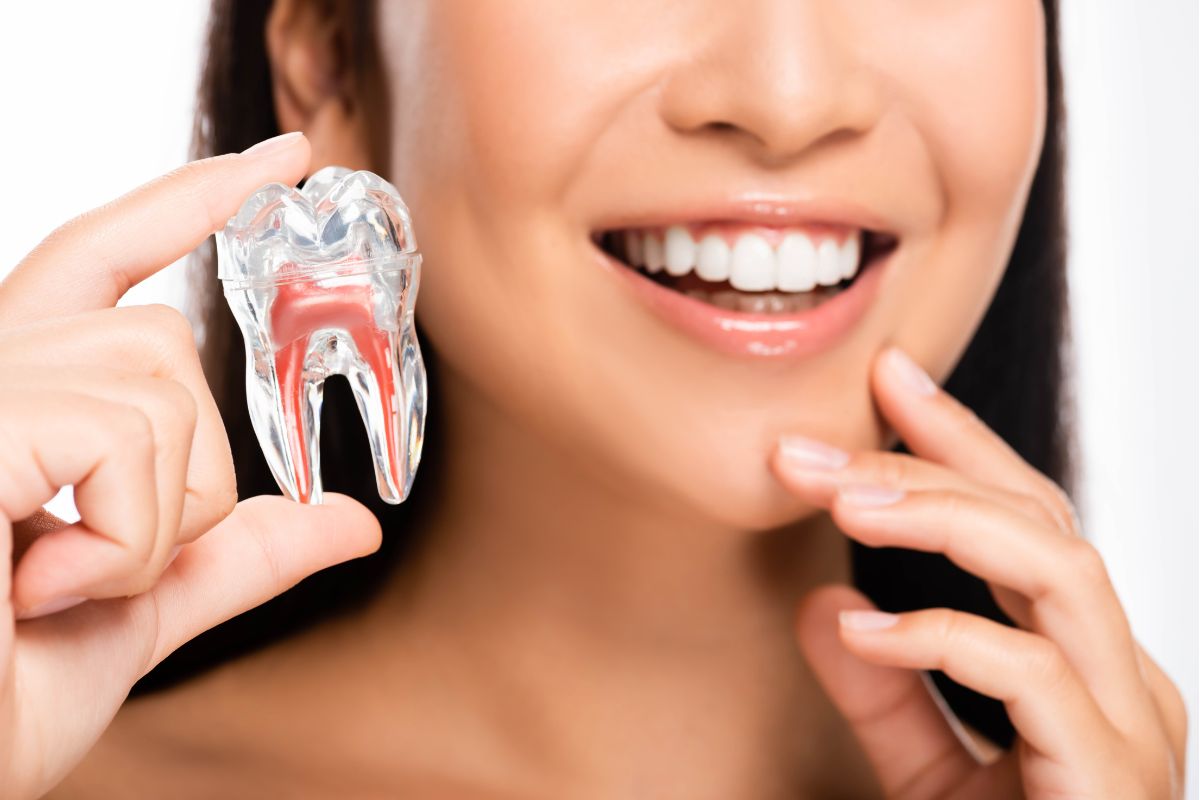Book An Appointment

When it comes to achieving the perfect smile, many people explore various options – from teeth whitening and braces to dental implants. Among these, dental veneers have emerged as a popular choice for those looking to enhance their smiles. But what exactly are dental veneers, and why might they be the perfect solution for you? In this comprehensive guide, we will delve into everything you need to know about dental veneers, including their benefits, the procedure, aftercare, and why they may be the ideal choice for your unique dental needs.
What Are Dental Veneers?
Dental veneers are thin shells of porcelain or composite resin that are custom-made to fit over the front surface of your teeth. They are designed to improve the appearance of your teeth by addressing various cosmetic issues, including:
- Discoloration: Stains from food, drinks, or smoking can make your teeth look dull. Veneers can mask these imperfections.
- Chips and Cracks: Minor damage can be repaired with veneers, restoring the tooth’s original appearance.
- Misalignment: Veneers can create the illusion of straighter teeth, making them an excellent option for those who may not want traditional braces.
- Gaps: If you have spaces between your teeth, veneers can fill in these gaps for a more uniform smile.
Types of Dental Veneers
- Porcelain Veneers: Made from high-quality ceramic, porcelain veneers are durable and stain-resistant. They mimic the natural translucency of teeth, offering a beautiful and realistic appearance.
- Composite Resin Veneers: These are less expensive than porcelain veneers and can be applied in a single visit. However, they are not as durable and may need replacement sooner.
The Benefits of Dental Veneers
1. Aesthetic Enhancement
One of the most compelling reasons to choose dental veneers is the immediate improvement in the appearance of your smile. Whether you’re dealing with discoloration, chips, or gaps, veneers can create a symmetrical, bright, and attractive smile that boosts your confidence.
2. Quick Transformation
Unlike other cosmetic procedures that may require multiple appointments or lengthy treatments, veneers can often be completed in just two visits to your dentist. The first appointment involves consultation and tooth preparation, while the second is for placement.
3. Minimally Invasive
Getting veneers typically requires less tooth structure removal compared to crowns or other restorative options. In many cases, only a thin layer of enamel is shaved off, preserving more of your natural tooth.
4. Stain Resistance
Porcelain veneers are highly resistant to stains, meaning you can enjoy your favorite foods and beverages without worrying about discoloration. This makes them an excellent option for those who may struggle with maintaining white teeth.
5. Durability
With proper care, dental veneers can last anywhere from 10 to 15 years or more. This long-lasting solution makes them a worthwhile investment for your smile.
6. Versatility
Veneers can be tailored to meet a variety of cosmetic needs. Whether you have uneven teeth, discoloration, or small gaps, veneers offer a versatile solution that can address multiple issues simultaneously.
7. Improved Self-Esteem
A beautiful smile can significantly enhance your self-esteem. Many patients report feeling more confident in social situations, leading to improved personal and professional relationships.
The Dental Veneer Procedure
Step 1: Consultation
Your journey to a perfect smile begins with a consultation. During this visit, your dentist will examine your teeth, discuss your goals, and determine if dental veneers are right for you. They may also take X-rays or create impressions of your teeth.
Step 2: Tooth Preparation
Once you decide to move forward, your dentist will prepare your teeth for veneers. This may involve removing a small amount of enamel to ensure a proper fit. After this, your dentist will take impressions that will be sent to a dental lab to create your custom veneers.
Step 3: Temporary Veneers
While your custom veneers are being created (usually taking a week or two), you may be fitted with temporary veneers. These help protect your prepared teeth and give you a preview of what your final smile will look like.
Step 4: Placement of Veneers
When your veneers are ready, you’ll return to your dentist’s office for placement. Your dentist will ensure that the veneers fit perfectly, make any necessary adjustments, and then bond them to your teeth using a strong dental adhesive.
Step 5: Follow-Up Care
After placement, your dentist will discuss aftercare instructions. It’s essential to maintain good oral hygiene to keep your veneers in excellent condition.
Caring for Your Dental Veneers
While dental veneers are durable, they still require some care to ensure their longevity:
1. Maintain Good Oral Hygiene
Brush your teeth twice a day and floss daily to keep your gums healthy. While veneers are resistant to staining, the natural teeth underneath still need proper care.
2. Avoid Hard Foods
Although veneers are strong, they can chip or crack under excessive pressure. Avoid biting down on hard foods or ice or using your teeth as tools.
3. Regular Dental Check-ups
Regular visits to your dentist will help monitor the condition of your veneers and overall oral health. Professional cleanings can also help maintain their appearance.
4. Avoid Teeth Grinding
If you grind your teeth (a condition known as bruxism), it’s essential to talk to your dentist. They may recommend a nightguard to protect your veneers.
Who Is a Good Candidate for Dental Veneers?
While dental veneers can benefit many people, they may not be suitable for everyone. Here are some factors to consider:
- Good Oral Health: Candidates should have healthy teeth and gums. Any existing dental issues should be addressed before getting veneers.
- Non-Smokers: Smoking can affect the longevity of veneers. Quitting can improve your oral health and enhance the effectiveness of the treatment.
- Realistic Expectations: It’s essential to have realistic expectations about the results. Discuss your goals with your dentist to ensure they can be achieved with veneers.
Common Myths About Dental Veneers
Myth 1: Veneers Look Fake
While poorly crafted veneers can look unnatural, high-quality, custom-made veneers closely mimic the appearance of natural teeth. When done by an experienced dentist, they should enhance your smile while maintaining a natural look.
Myth 2: Veneers are Irreversible
While some enamel removal is required to place veneers, this is not always irreversible. However, once the enamel is removed, you will need to have veneers or another restorative option in place.
Myth 3: Anyone Can Get Veneers
While veneers can benefit many individuals, they are not suitable for everyone. Those with severe tooth decay, gum disease, or bruxism may need to address these issues first.
Dental veneers are a fantastic option for anyone looking to enhance their smile quickly and effectively. With their numerous benefits – ranging from aesthetic improvement to durability – they offer a versatile solution for various cosmetic dental concerns. Whether you’re looking to fix chips, gaps, or discoloration, dental veneers can help you achieve a radiant smile that boosts your confidence.






